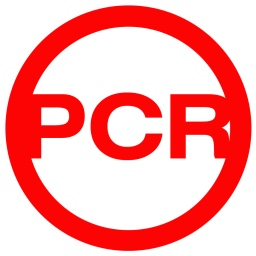Fake Web Popups from Poisoned Ads
Oct 07, 2025Popups that claim your PC is infected or that your “system is locked” are not real security alerts. They’re called scareware or browser hijack popups, and most come from poisoned ads — legitimate websites that accidentally display a malicious advertisement.
These fake warnings look official, use your browser’s design to appear trustworthy, and often include audio alarms or full-screen overlays that prevent closing the tab. Their goal: make you panic, click, or call.
Example 1 — The “Your Computer Is Infected!” Popup
Microsoft Defender Alert: Your computer is infected with Trojan:Spyware.Win32.
Do not shut down your computer! Call support immediately: 1-800-555-0199
⚠️ Why this is a scam
-
Real antivirus warnings never appear as webpages.
-
The domain in the address bar isn’t Microsoft, Apple, or your security vendor.
-
Popups that demand a phone call are pure social engineering.
💡 What’s really happening
The site you’re on — or an ad on it — redirected your browser to a malicious ad server. The code running in the page imitates a system warning. There’s no real infection. The scammer’s number leads to a fake “support center” that will ask you to install remote access or pay for “cleaning services.”
✅ What to do next
-
Don’t call or click anything.
-
Close the browser tab or use Task Manager (Windows, press Ctrl+Shift+Esc) or Force Quit (Mac, press Cmd+Opt+Esc).
-
Reopen your browser, go to Settings → History → Clear recent browsing data.
-
Run a scan with your actual antivirus or Malwarebytes.
Example 2 — “Your Browser Has Been Locked!”
Apple Security Alert: Your browser has been locked for viewing illegal content. Call Apple Support immediately at 1-888-000-XXXX.
⚠️ Why this is a scam
-
Scammers copy Apple’s interface and use fake alerts with similar fonts and colors.
-
Apple never locks your browser or displays phone numbers in alerts.
-
Legitimate macOS notifications come from the system tray, not Safari tabs.
💡 What’s really happening
A malicious ad injects JavaScript that prevents closing the window, then displays an “alert” box to simulate a lock. There’s no malware — it’s just the page preventing you from leaving.
✅ What to do next
-
Press Command + Option + Esc → Force Quit Safari.
-
Reopen Safari with the Shift key held down to skip reloading old tabs.
-
Clear Safari history and website data.
-
Report the scam page at reportphishing.apple.com.
Example 3 — The Audio “Virus Detected” Alert
“Warning! Your computer is infected. Do not close this window. Call technical support immediately!”
⚠️ Why this is a scam
-
Real security software never plays audio warnings through your browser.
-
These are ad scripts triggering autoplay audio to cause panic.
💡 What’s really happening
This scam uses poisoned ad networks — advertising spaces purchased by scammers to deliver malicious JavaScript that redirects to a fake security site. It’s all visual and audio trickery.
✅ What to do next
-
Mute or close the browser immediately.
-
Restart your computer if it won’t close.
-
Run a scan using your installed antivirus.
Why this matters
Even experienced users can be fooled because these popups appear while visiting legitimate news or weather sites. Scammers purchase cheap ad slots through real ad networks, insert JavaScript redirects, and spread fear.
Antivirus won’t help here — the page itself isn’t a virus, just a psychological trick.
What to tell friends or family
If a popup tells you your computer is infected or locked, don’t click or call. Close the browser, restart, and contact a trusted tech professional — not the number on the screen.
If you ever see a popup like this, take a screenshot and send it to [email protected] or schedule a 15-minute remote checkup.
We’ll tell you if it’s real — before you click or call the wrong number.
Have a PCRescue Subscription?
You already have access to free tools and support
If you don't have a PCRescue Subscription, try one free for 30 days.
No credit card required.
Stay connected with news and updates!
Join our mailing list to receive the latest news and updates from our team.
Don't worry, your information will not be shared.
We hate SPAM. We will never sell your information, for any reason.

